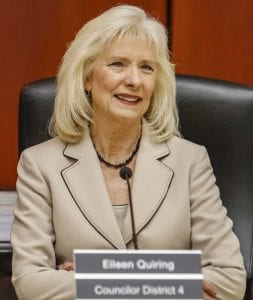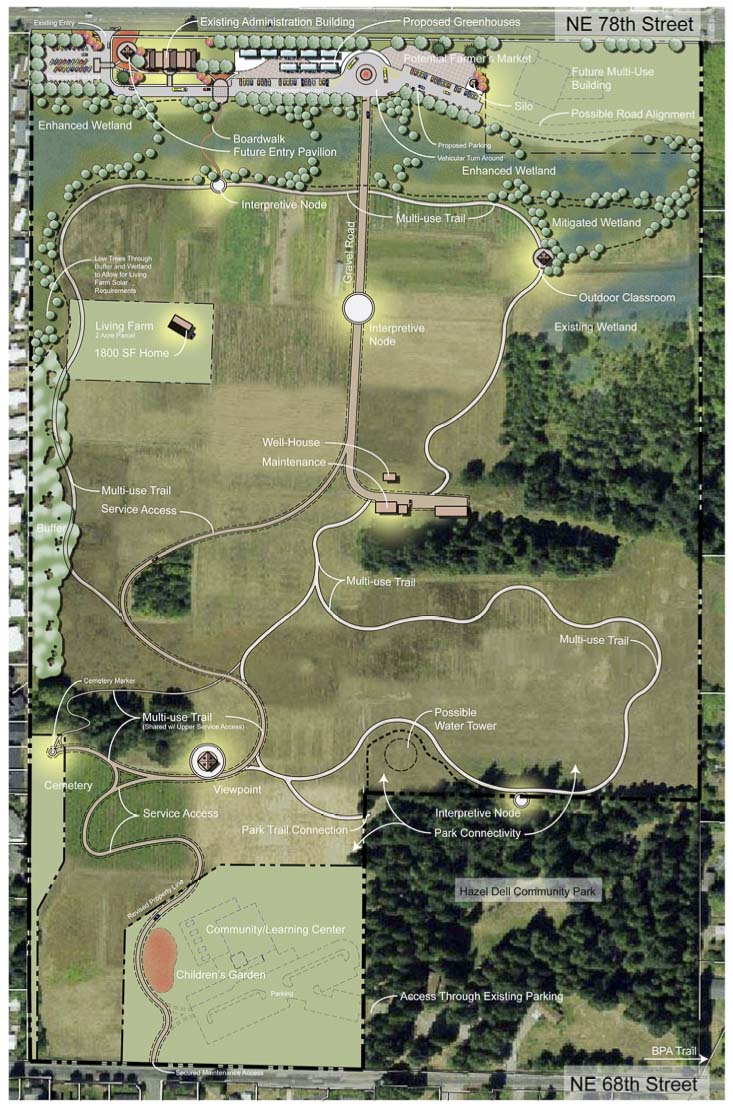Council heard from staff as they sought input on next steps
VANCOUVER — Clark County Council members held a work session Wednesday morning to discuss the history, future plans and next steps for the historic 78th Street Heritage Farm.
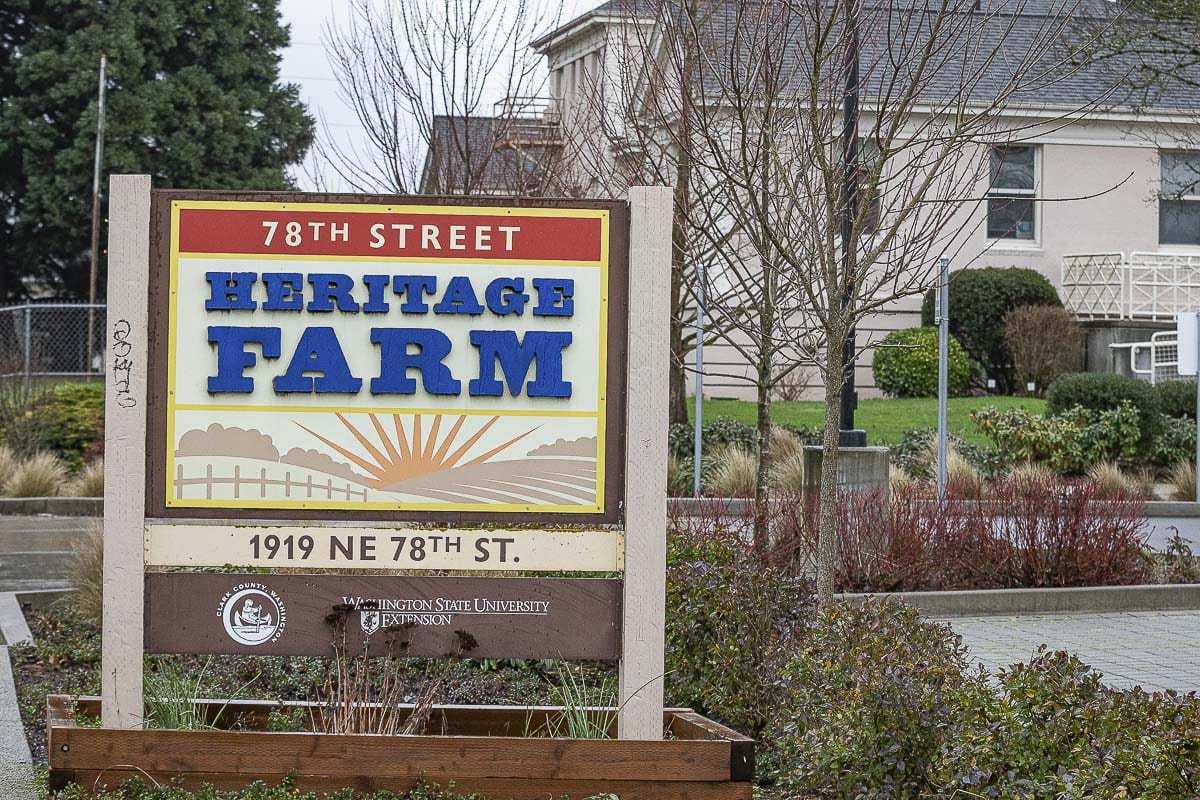
The meeting was attended by a large number of community members, many concerned about speculation circulated in letters to the editor and emails sent to councilors expressing fears council was intending to sell or commercialize the farm property.
Council Chair Eileen Quiring attempted to put many of these fears to rest by stating they are not looking to sell any property, only trying to maximize and grow use and keep general fund costs to a minimum.
During time for public comments at the council’s meeting on the previous day, Jan. 7, one community member offered some feedback and services with regard to the farm and it’s future.
“Over the last couple years, as a staff member at the Historical Museum, I’ve been able to help develop an interpretive walk of the Heritage Farm,” said Bradley Richardson, of the Clark County Historical Museum. “It seems like it’s a very valuable asset to the community and also connects to those deep agricultural roots that are still very present in Clark County. I’d be willing to donate my time and skills to help engage people with that site more.”
At the work session, staff from the Clark County Public Works Department explained current and past master plans, and relayed information on the activities the farm is most often used for. Total cost figures for 2018 and some for 2019 were laid out for council to evaluate as well.
In 2018, total county contributions totaled over $560,000. Though the books are not closed for 2019, Lands Manager from Public Works Kevin Tyler said the rough estimates place last year’s expenditure from the general fund slightly higher, at just over $590,000.
“We understand that council has consistently expressed an interest in reducing general fund expenses where possible,” Tyler said. “To throw out all the options on the table, in the short term reducing general fund allocations to support the farm through our budgeting process, whether that’s for facilities or parks and lands or some of the programs that Washington State University Extension offer, that’s an option that could be considered.”
Among the top reasons for convening the session was a desire to reduce general fund expenditures, which make up the vast majority of the support for the farm. At present, the county holds the deed to the property and shares in use, maintenance and cost with WSU through the Extension Program and volunteers.
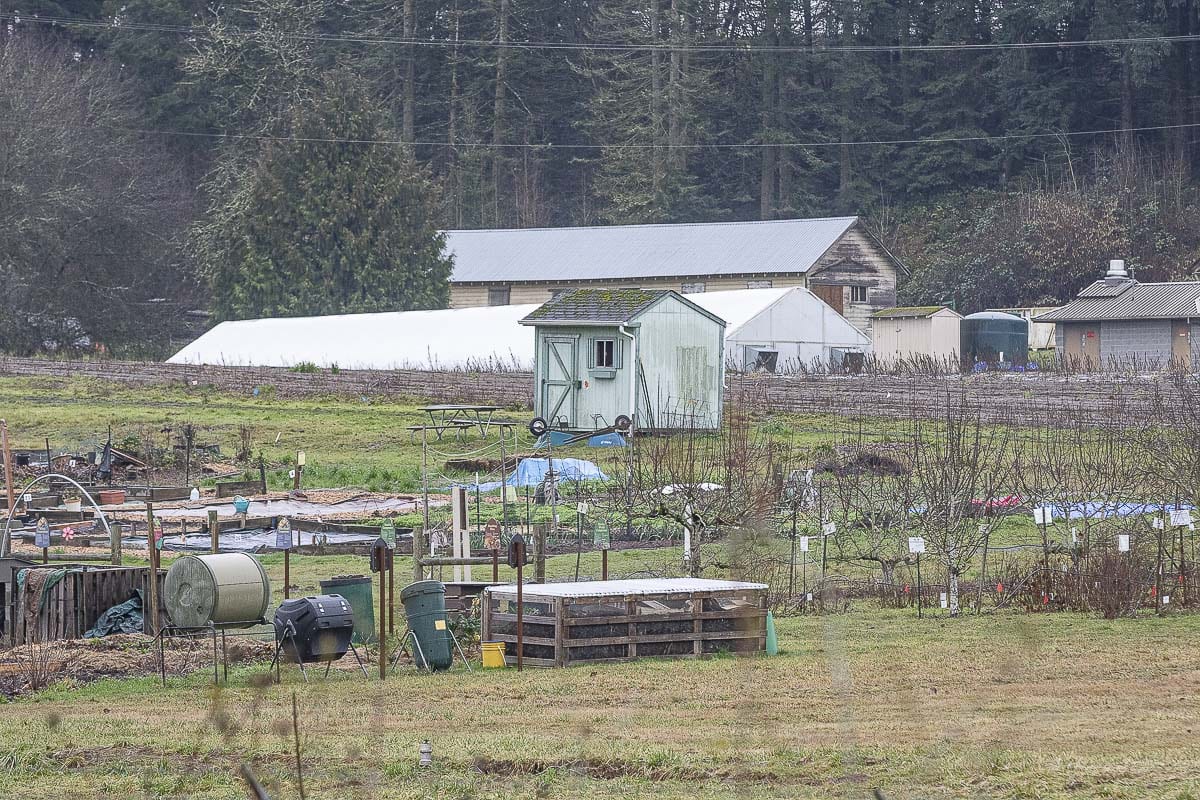
“The 2019 update [to the master plan] was undertaken to acknowledge and document the changes that have occurred since 2010 as well as outside influences that affect its programming and or facility needs,” said Patrick Lee, the program coordinator for the Parks and Land Division. “Many of the original concepts were validated through the public involvement process and some modified to better reflect today’s priorities.”
Lee explained the major differences between the master plan developed for the farm in 2010 and the one developed last year; generally noting changes to the interpretive trail and subtraction of new amenities near Hazel Dell Park.
To understand key components of interest, background was provided by Jaqui Kamp from Community Planning at the request of Council Member Temple Lentz.
In Kamp’s summary, the farm was first created in 1873 with the deeding of land to the county by William Reese Anderson in order to settle a judgement against him. It was then established as the Clark County Poor Farm and provided relief to those in need as well as food for local hospitals.
The 79-acre property includes what is now Hazel Dell Park as well as the farm itself. In addition to over a dozen out-buildings, some 200 persons are buried in a now, unmarked cemetery on the site, and many plots of land have been farmed by various organizations since the farms inception. Of the structures on the property, seven are listed as currently contributing by the Clark County Heritage Register, while the other six are not.
As far as building and demolition on the property, the historic classification does require a process of approval. Kamp explained that this does not render such activities an impossibility, but rather is used as a cautionary step.
“They [The Clark County Historic Preservation Commission] have a list of criteria that’s in code that they look at, that tries to minimize any impact to the building or a viewpoint or just so that it doesn’t take away from the significance of the why it’s listed,” Kamp said. “But new buildings are put on residential properties, new garages and such, and it’s just a process so that they can have some counsel … so that it doesn’t impact why it’s historic.”
From the late 1943 to 2008, Washington State College, now Washington State University, managed part or all of the farm and its facilities for research, study and experimentation. In 2008, due to a cessation in funded research at the farm on the part of WSU, the deed was returned to the county.
Shortly thereafter, in 2010 and 2011, the drafting of the first master plan began. It included a vast array of upgrades, preservations and most prominently a foundational theme of furthered public access; (see graphic diagram).
Fast forward to 2019 and things have changed substantially. Tyler explained that at one point his division had sought legal counsel on the possibility of adding the farm to the Metropolitan Parks District Levy, and were told they could not proceed.
Thus, lacking a park classification, the farm does not allow unconditional access. Subsequently, construction of a large barbed-wire fence was completed around the farm properties perimeter, excluding Hazel Dell Park. The fence was also a measure against vandalism, which was mentioned as a past issue in the session.
These developments in the narrative lead the county to roll back many of the public-access-style features prominent in the 2010 plan. The 2019 plan reflects this with a public walking path not through the farm, but around it, as well as fewer new amenities and community gardens.
Chair of Heritage Farm Advisory Committee Sandy Brown also gave a detailed account of how organizations apply to use the farmland as well as possible sources of new revenues. Each organization must fill out an application online that is submitted to the county for review.
“There are some business models both for not for profit and for profit organizations,” Brown said. “Most of them are not for profit. There aren’t any that I know of that are for profit, but if the for profit organizations were there, they would be charged a market rate for the rents unless they can demonstrate that their program will provide an overriding benefit for the community.”
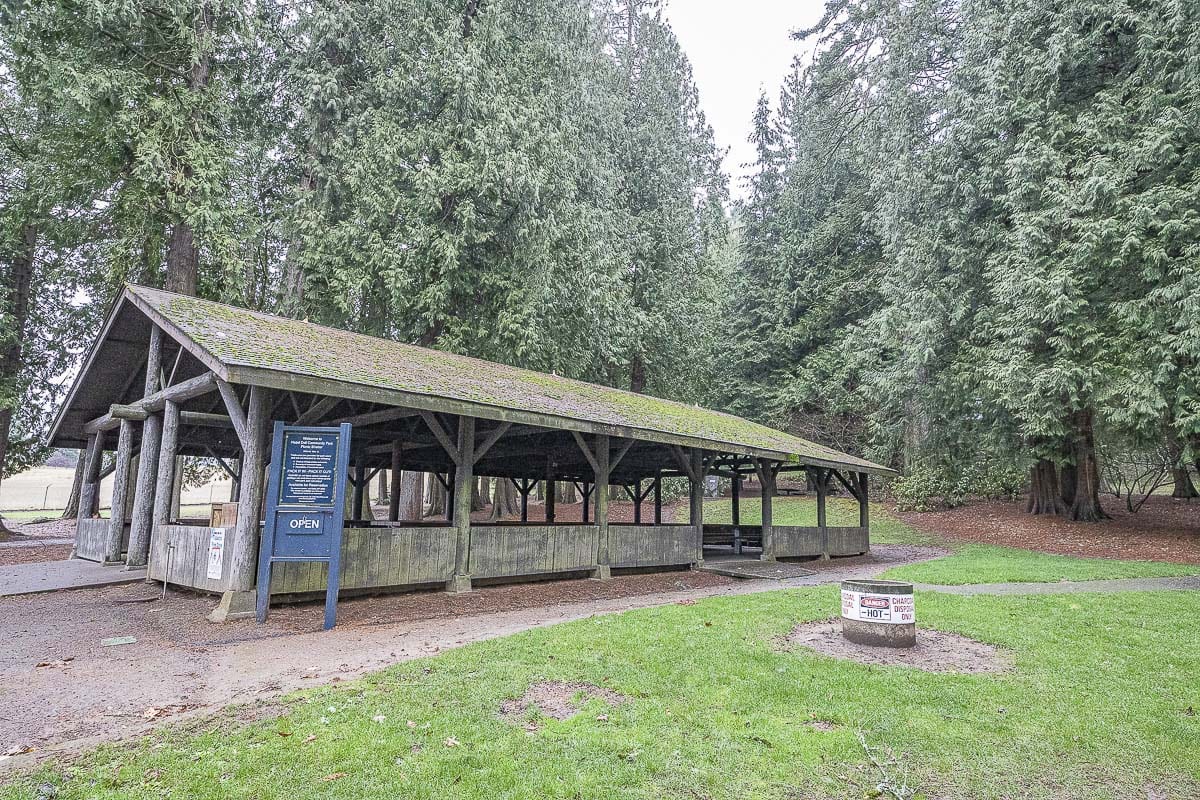
Possible sources of new revenue cited by staff included a flex space for lease, public-private partnerships, business and marketing plans, and “robust programming” on the site.
Council members each relayed their thoughts on the issues. Perspectives were similar in the sense of agreement on maintaining and expanding current features of the farm. Disagreement arose when it came to the possibilities of public-private partnerships that could lead to businesses or a corporate headquarters on some of the farm’s property, as well as having additional meetings and the benefit of bringing in expert consultants.
“It seems like there should be some way to to create more opportunity for people in the community if they wanted to be part of a community garden to enhance that,” Quiring said. “To me seems like it could be enhanced by the idea of maybe finding out if there’s any business or jobs that could be placed on this piece of property, thereby create kind of a tax base and also a spot where people are close to the freeway … it would be close to utilities.”
Quiring went on to say she greatly values the idea of a farmers market at the farm, as well as possible partnerships with businesses that, if they were allowed to build on a portion of the property, would blend those structures with the heritage theme.
Lentz cautioned against the selling of the property and not having enough community input, to which Quiring responded with frustration.
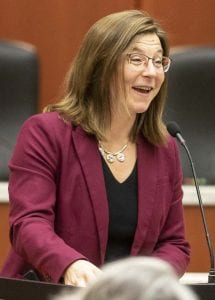
“We’ve also kind of gotten into a scattershot approach with what we think should be done,” Lentz said. “I think small plots would be great, I think a farmers market would be great. But if we end up in this place where we’re talking about what I think or this person or that person, we lose a cohesive vision. I encourage us to take all of these ideas, and to try to solicit even more good ones, especially if we talk to the subject matter experts who work in farming, who work in land preservation who work in thinking of creative ways to further this industry that does need our support.”
“This is the discussion. This is the time for the discussion,” Quiring rebutted. “So saying that it’s a scattershot, it’s really a brainstorming session where we want to take the opportunity to kind of give our opinion about what might work. And furthermore, I want to mention about selling, nobody’s talking about selling any part of this farm.”
Council member Gary Medvigy shared his ideas earlier in the discussion, but also revisited them in an effort to head off conflict, he said.
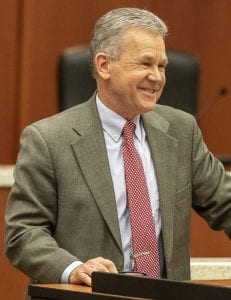
“From my perspective, so many great uses going on here that, in my mind aren’t really well coordinated or could be better coordinated to amplify them,” Medvigy said. “Maybe it’s just a different management structure. We have it so restricted right now, with the public access, that it doesn’t look like much of a gem, it looks like it’s only being used by certain entities at certain times. And so I guess the question comes back to you, [Public Works] how do we manage it better?”
Councilors John Blom and Julie Olson also commented on the situation. Blom cited a greater need for alternative revenue sources that are more specific, and Olson echoed Blom’s statements and asked for more options.
“So I think there’s, there’s two important conversations that we need to have. I think one is about ideas, and one is about vision. What do we want for this? And the second part is, how do we get there? And how do we pay for that?” Blom said. “We can’t just say, here’s what we want, but then also say we’re not going to pay for it.”
“I completely agree with, I think, all the counselors with regard to maintaining agricultural component and historic component of this property,” Olson said. “This is right smack in the middle of my district. So it’s important to me both personally and as a representative of the folks that use the farm and live there and in the community there. So to Councilor Blom’s point, all variety of funding sources, and how do we pay for what that ultimate vision might look like?”
The work session concluded with Public Works staff being charged with finding out more sources of management and income. Director Ahmad Qayoumi said they would return with the information in a month.




